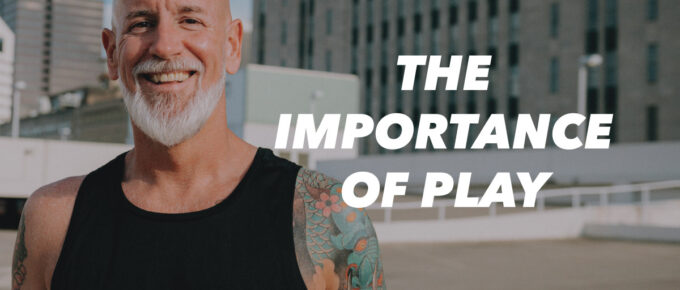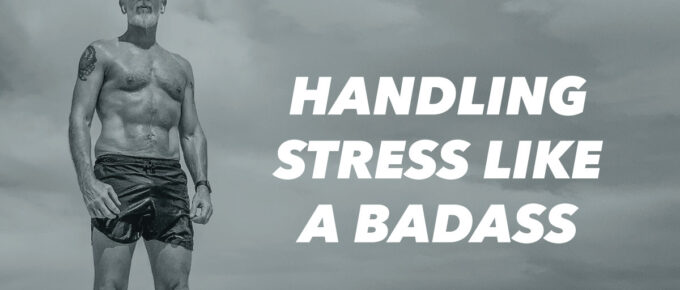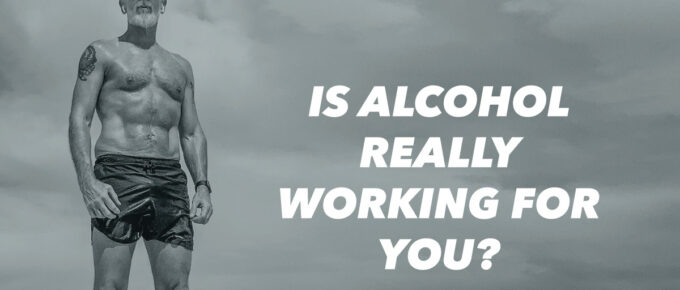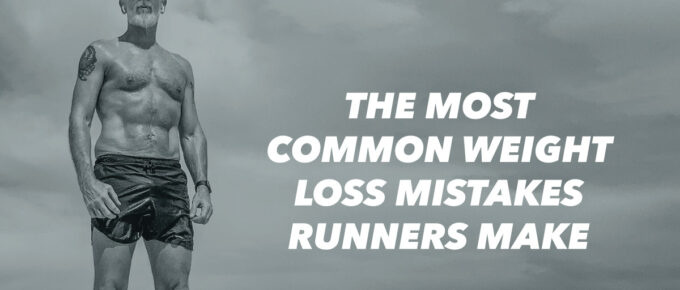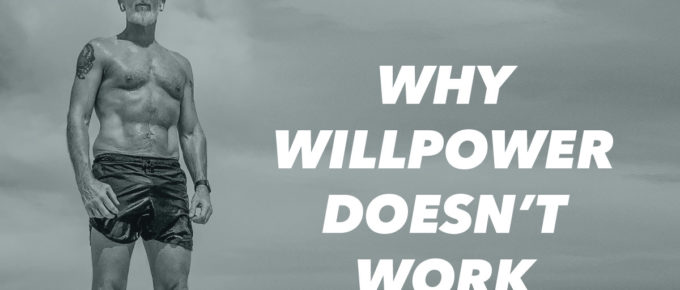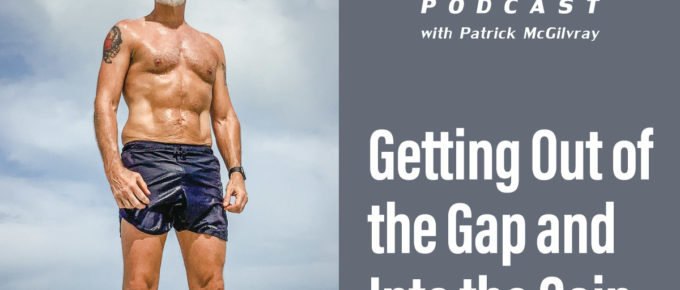I think we can all agree that children need to play. Play is crucial for their brain development and their mental and emotional growth. But what about us adults? Should play be abandoned once we …
151. The Importance of Play
Podcast Transcript
My name is Patrick McGilvray, and I’m an experienced marathoner, ultra runner, Sports Nutritionist, Master Life Coach, and weight loss coach for runners. I’ve dedicated my life to helping runners just like you properly fuel your body and your mind. So you can get leaner, get stronger, run faster, and run longer than you ever thought possible. This is Running Lean.
Hey there, and welcome to episode 151 of Running Lean. My name is Patrick McGilvray, the weight loss coach for runners and today, the importance of play. I think we can all agree that children need to play. Play is crucial for their brain development. Play is crucial for their mental growth and for their emotional growth.
But what about us? What about us adults? Should play be abandoned once we reach adulthood? The short answer is no. Play should continue for everyone, no matter what age. But why, why is play so important? Why should we make play part of our everyday life? What does it even mean to play? What does play even mean for us adults, right?
So in this episode, I’m going to take a deep dive into the importance of play, and hopefully inspire you to integrate more play into your day to day life. But first, a quick question for you to ponder. Who are you becoming? Who are you becoming? It’s a very valid question, right? But have you ever really thought about it? Have you ever really taken the time to paint a picture of who you want to be in the future, the future you?
What does the future you look like? How do you feel about yourself? What have you accomplished? Where are you in the future? That may seem impossible for where you are right now in your life. This is one of the very important exercises that I do with all of my coaching clients, we paint a very clear picture of who they want to be, who do you want to be?
And then we put together a plan to get you there. If you’re ready to get started becoming that future, you that healthiest and most badass version of you, then you are ready for some coaching, you’re ready for the Running Lean coaching project. This is my unique weight loss health and fitness coaching program for runners where the project is always you.
So to learn more, go to runningleancoaching.com/apply and get started. You and I will jump on a quick call. We’ll see if this is a good fit for you. If it is, boom, we’ll get you in, we’ll get you started right away. Okay, runningleancoaching.com/apply and hope to see you in the Running Lean coaching project.
Okay, so the importance of play. This is a topic that I’ve been thinking about for some time. And I recently spent an entire week in Disney World, which is the happiest place on earth, apparently. And I grew up in LA. So I grew up in the LA area and spent a lot of time going to Disneyland as a kid even as an adult. And it’s one of my favorite things to do to just go and have fun and play.
And I’m going to talk more about my experience at Disney later in this podcast. But it got me thinking that you know, play is something that we abandon as we become adults, and it’s something that we should not abandon. That’s something we need to embrace on a regular basis. So it really got me thinking about why is play on board and for us as adults like why should we be engaging in more play?
Why should we incorporate more play into our life? And so that’s what I’m focusing on today. And I will talk about my experience at Disney World, which was my first time ever there and had so much fun. It just took me back to my childhood and I had such a great time. But here’s the thing, why is play so important.
Why is play important for kids, first of all. So, you know, like I said at the beginning here that for children. Play is important. It’s really important for kids’ brain development. It’s important for them to learn how to connect and interact with others. It helps them to express their creativity and to learn how to be creative and helps them to express their unique self and to be more self aware and aware of others. It helps to nurture Critical Thinking in children.
Healthy play time for kids leads to healthy adulthood. Okay, so we all know that that play is so important for kids, we integrate it into their day to day life. You know, we make recess and free play part of their schooling. Like, we know that this is important for kids.
But at some point, we take all of that and we abandon it because we’ve quote unquote, like become adults, like, what does that even mean to become an adult? Just because you turn 18 or 21? Or 25? What is that? What’s the cut off for playing as adults?
And I’m here to tell you that never is the cut off for playing. For adults, we never outgrow the need for play in our lives. Okay. So some of the reasons why we want to continue playing as adults is that it helps to continue just like it does with kids. It helps us to connect with others and helps us to build healthy relationships with other people.
It helps us to release endorphins, and dopamine, and all the good feeling hormones, it helps us to reduce stress, it helps improve our brain functionality. It helps us to improve our memory, and stimulate creativity. It helps us to feel young, and energetic play just gives us a feeling of youthfulness and energy. And it actually stimulates brain cell growth in adults.
And if you want to live a long and healthy life with a functioning brain, and cognitive function, then you need to continue to play in your everyday life. Why would we ever stop doing this? There are really no downsides to play. There’s nothing negative about it. And I’ll talk about that in just a minute here, like what play is and what it is, and are you doing it wrong.
Because there’s a right way and a wrong way to play. But think about all of these positive health benefits of play, especially for the aging adult. And if you’re finding your life is full of stress, and you’re finding it hard to be in a positive state of mind on a regular basis, then maybe play is the answer for you. Why would you stop playing with all these positive benefits?
Okay, so let’s get into what play is and what it isn’t. So play has to be something that is done. For the sake of play, it has to be done for its own sake, the act of playing, engaging in play is more important than any kind of outcome that you’re seeking. Okay. So I know that most of the people listening to this podcast are runners and if you’re a runner, and you’re like, Yeah, my idea of play is to run a 5k every weekend and crush everybody else out there and beat my time every single time and if I don’t beat myself up, and I get I’m really hard on myself and I work out really hard in order to crush all these competitors every weekend.
If that’s your idea of play. I don’t think you’re doing it right. Okay, I think that might be fun, competitive. Sports are fun. But they’re not necessarily play. If you like to play poker, let’s say, and you enjoy playing cards and you have fun playing a competitive card game every now and then. That’s all good. And that might be considered play. But if you’re a gambling addict, and your only goal is to hit some huge jackpot and you know you’re blowing through all your life savings, then that’s not play. That is not play, that is something completely different. Okay.
Family Game Night, family game night. Oh my gosh, it’s so much fun, right? It’s play as long as your goal isn’t to dominate every other person in the room and make other people cry. If somebody’s crying at the end of the night, and feelings are hurt, and that may not be play, it may be something you’re taking a little too seriously.
Okay, so play can be competitive. Play can involve tactics and strategy, and you can want to win and you can want to crush a 5k but if it’s causing more stress and anxiety for you, then I don’t think you’re doing it right. Play should cause you to feel more relaxed, it should feel like you should get that release of endorphins and dopamine and it should actually feel good and you should walk away from play. Feeling better, not worse. If you’re feeling worse, you might be doing it wrong. Okay.
Now there is an author of a book called Play Dr. Stewart Brown. And he’s been studying play for forever. And he outlines five different types of play that he’s observed during his years of research. Now there’s more than these five types, but I’m going to go through the five that he talks about, because I think it’ll give us a better picture, it’s a good way of explaining what types of play we can engage in.
Okay, so the first type of play that he talks about is rough and tumble play, which is a good way for us to learn, like, if you’re learning how to, you know, hit a baseball or, you know, playing games, like kickball or dodgeball, or soccer, those kinds of things.
Even you know, swimming and diving and capture the flag, you know, kickball, these are all fun, rough and tumble types of games that we can play. And they help us with, you know, mastering something physically like becoming a good diver and learning how to do a triple flip or something like that, like, that’s a great way of engaging in rough and tumble play.
Then there is another type of play, he calls ritual play, which is things like board games, and chess. And this would be like more activities and sports with certain structures and, and rules, you know, basketball and football and soccer and baseball and those kinds of things. It’s also ritual play, when we are creating and strategizing and designing and engaging in activities that bring different people together for a common purpose or a goal.
Then we have imaginative play. So this is the kind of thing where you are storytelling, drawing, acting, taking an improv class painting, these kinds of things are all imaginative play.
Then we have body play. Body play is what a lot of us kind of, in this community tend to gravitate towards. So this is, you know, where we do things like you know, running and hiking, and Pilates and yoga and riding roller coasters and climbing mountains and surfing and, and maybe snorkeling, these are all things that we can do to use our body as a way of just getting out and having fun and playing. Okay?
Again, if we’re getting too competitive with it, it may not be considered play. And if the outcome is more stressful, it may not be play. So just be mindful of that.
And then there’s object play, which is building things like with Legos and making a fort out of the couch, having a snowball fight, designing things, these can all be like object play. So there are many, many ways of play, there’s many categories of play, we can all find things that we can relate to and that we can gravitate towards.
There’s no right or wrong answer here. But just be thinking about the types of activities that you’re engaging in. How are they making you feel? Are you feeling more rejuvenated and more connected to others? And less stressed out when you’re engaging in this play? Or are you feeling more anxiety and stress and actually feeling resentful of others because you lost and they won or something like that, you see what I’m saying there is a very, pretty stark difference, and you’ll know it when you see it. Okay.
So there’s all these ways that play, and a lot of the things that I just mentioned can help improve your cognitive function, how having the ability to deal with stress better, improving your creative thinking, having this childlike exuberance, about life, laughing more often, far into adulthood. Like, these are some of the most important things you can do for your health, for your physical health, for your mental and emotional health. And I would say for your fitness too, because you know, being in a state of chronic stress, it’s going to be really hard on your body.
And if you want to improve your body and improve your body composition, you’re somebody that’s trying to, you know, maybe get leaner and get stronger. Being in a state of chronic stress is going to thwart that progress. It’s going to make it so hard for you to make progress, losing weight and getting fitter. So play can be one of those things that reduces stress and eliminate stress from your life really helps to keep you sharp.
It helps to keep you functioning at a high level and helps you to grow mentally, emotionally, physically. And it’s so good at reducing stress, right? So why wouldn’t you want to engage in play all the time. So, let’s talk a little bit about my week. I’m excited to sort of share some of this with you, because I had so much fun.
So like I said, at the beginning here, I’m a Disneyland person, like, I grew up in LA, and I grew up going to Disneyland, and I have very fond memories of Disneyland. And it was always just one of those places that we went to as kids, my parents would take us there, we only lived about two hours away from there. So we would go there.
And, you know, every summer and I just have so many great memories from being at Disneyland. So, you know, I was talking to my girlfriend about it recently. And we just decided that for my birthday, this year for my birthday. About a week ago, we decided that we were going to take a trip and just spend a few days down there.
And so we booked a place. we booked one of the Disney resorts. So we were close to all the action, we went to all the parks. And my goal was to do nothing but play for a week. Really, I blocked out my calendar, and I spent, you know, I took my laptop with me, but never even turned it on, didn’t even open it up because I was just so focused on just being in the moment and playing.
And listen, I do things for fun, you know, on the regular I, I like to run and I lift weights, and these things aren’t always fun or play, okay, sometimes they can be but not always. But there’s things I do that would fall into that play category for sure. On a regular basis, like walking and doing yoga and listening to books and podcasts, watching movies, TV shows, I’m a huge sci fi nerd, right. Love Star Wars, love, you know, Game of Thrones and things like that.
And so I’m really into a lot of that fantasy stuff. And to me, that is super fun. Family Game Night is something we do spending time with my grandson, oh my gosh, these are all ways that I love to play and try to play on a regular basis. But I wanted to take things to the next level.
So we went to Disney World, got to go to all the parks. And like I said, my goal was just to have fun and play for a week, not with any sort of like outcome in mind, but just to play, and to experience all of the fun that is available, which is everywhere you look, it’s nothing but fun. I love Star Wars and I got to immerse myself into Star Wars Land there, Disney’s Hollywood Studios. And I just felt like a little kid again.
Star Wars was one of those things that I saw when I was about 11 years old. And it sort of changed my life. I really fell in love with sci fi at that time, because it wasn’t something that really appealed to me until then. And then it was something that I was really, really changed my mind about a lot of that kind of stuff. And I really got into it and was really excited to be immersed in this Star Wars lane.
And I felt like I was among my people. Like all the other people I saw there were a lot of people that were similar in age to me, and had similar looks on their face, which they were just really happy and smiling a lot. I rode all the roller coasters at all the parks and laughed so much and had so much fun, huge smile across my face the whole time.
And even while we were down there in the middle of the week, this big hurricane came through Hurricane Nicole that ended up hitting landfall in Florida as a category one hurricane pretty quickly got reduced to a tropical storm by the time it hit us in Orlando. But so, this tropical storm kind of shut down the parks for about a day so they closed the parks early on Wednesday, and then opened them up for about a half a day on Thursday. So we missed out on a big chunk of time there and then dealt with like just torrential rain all day on Wednesday when we were at the parks. Even that did not stop us from playing and just having fun. Like we still had fun.
We bought some ponchos, some plastic ponchos that we ended up wearing all the time. And I will tell you that it was the best $12 I ever spent on each one of those ponchos because we were able to just walk around and have fun, stand in lines outside and be in the rain and stay relatively dry.
Really not an ideal situation but we made the most of it and still had so much fun. So, so coming back from this trip, I just feel so rejuvenated and relaxed and free of stress. And I was thinking about this this morning. And really this whole trip taught me a big lesson. And the lesson is that I need more of this in my life, I need to include even more play into my day to day life.
Somehow I need to make play more a part of what I do every single day. And so I’m asking myself this question, and I want you to ask yourself this question: what can I do today? To play? Not, you know, to crush the competition or, you know, to, you know, make somebody cry? But what can I do to just play for the sake of play? Just because we’re adults, doesn’t mean we have to stop playing. Having fun, being silly, for no other reason than to have fun and be silly, is crucial.
For us as adults, it’s crucial for physical, mental and emotional health. And I talked to so many people who tell me how stressful their life is. It’s their job. It’s the kids, it’s the families, their relationships, it’s their finances, all causing so much stress in their life. And then I’m like, Okay, what are you doing to play? How are you relaxing? How are you having fun? And they got nothing, just crickets? Why not? Why aren’t you engaging in play on the regular?
Are you embarrassed? Is it silly to act like a kid? You know? Are you too serious? And is this like, below you or something? No, it’s not. I mean, I get it. It can be kind of silly sometimes. And I felt like a little kid all week at Disney World. Like, I was waiting in line for all these rides. And there’s a lot of little kids around and but you know what, I loved every minute of it. Because it was like I was a kid again. And it felt amazing. And it feels good to be a kid. Why? Why not?
So ask yourself how can you play today? What can you do today? To start adding more fun and more play into your life? Who can you include in this play? Can you include your kids, your spouse, friends, family, the more the merrier. We want to build those connections. I want to build those relationships. What kind of a play appeals to you like board games, joining Soccer League, learning how to play the guitar, yoga, dancing, jumping on a trampoline, what appeals to you, just find something and do that.
And if you find it doesn’t work for you, you don’t like it, try something else. But make play a priority in your life. Make play something you do every single day, or at least as often as you can. Embrace that feeling of play. Embrace that feeling of being a kid again. However, that looks for you. You get to decide, play more, and you’ll enjoy life more. You’ll keep your mind sharp, you’ll build better relationships and you will live a healthier, happier life. I promise you. That’s all I got for you today. Love you all, keep on Running Lean, and I will talk to you soon.
If you’re a runner and you’ve been struggling to lose weight or you keep losing and gaining the same 10 pounds over and over again. Or you’re finally ready to get to your natural weight and stay there for good this time then I have something you will love. I’ve created a powerful new training just for you called running lean for life. You’ll learn exactly how to transform yourself into a lean fat-burning running machine. So you can run without bonking, lose weight without calorie counting and develop the habits required to make it last for life. To get this free training right now go to runningleanpodcast.com/leanforlife and start your transformation today.

